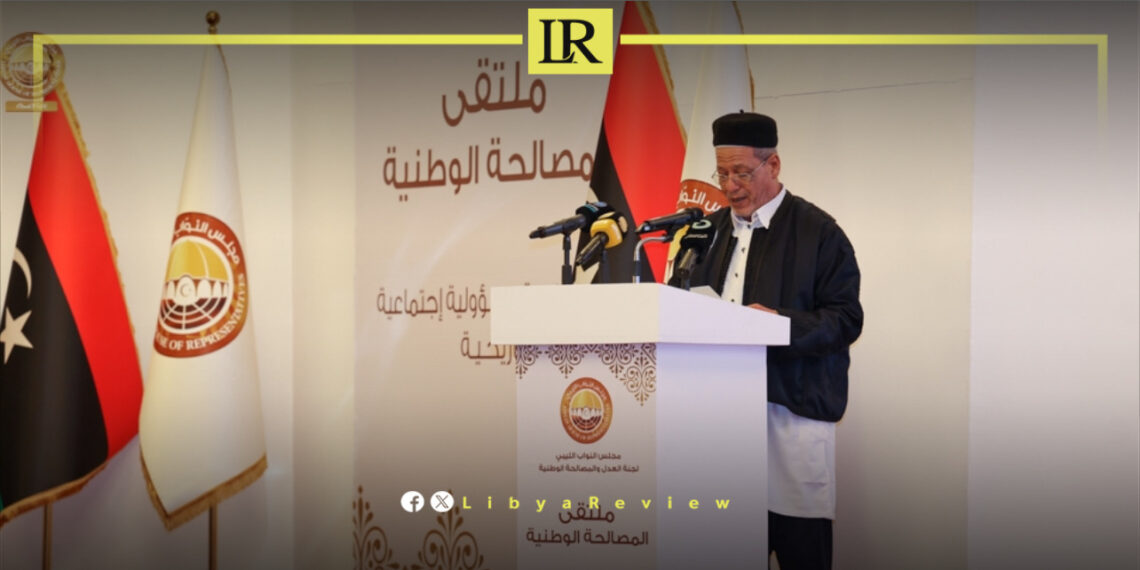On Monday, Libya’s National Reconciliation Forum concluded in Benghazi with a final communiqué that laid the groundwork for significant reconciliation initiatives.
Organized by the House of Representatives’ Committee on Justice and National Reconciliation, the forum brought together tribal leaders, dignitaries, and officials from across the country under the theme “Reconciliation: A Historical Social Responsibility.”
The final statement included three critical decisions aimed at fostering unity and addressing Libya’s deep divisions. The centerpiece was the adoption of the National Charter for Social Peace, a guiding framework for all Libyans to rebuild trust and pursue restorative justice.
A follow-up committee was established under the supervision of the House of Representatives to oversee the charter’s implementation. Additionally, the forum called on the parliament to expedite practical steps to bring reconciliation efforts to fruition.
Libyan House of Representatives spokesperson Abdullah Bliheg, highlighted the diverse participation in the forum, which included representatives from all regions of Libya. The discussions underscored the importance of reconciliation as a collective national responsibility and a pathway toward sustainable peace.
This forum builds on earlier initiatives by the parliament, including a workshop titled “For Restorative Justice and Social Peace.” These efforts represent a renewed push to address the divisions caused by years of conflict and political instability, as Libya seeks to transition toward national unity and stability.
The adoption of the National Charter for Social Peace marks a pivotal moment in Libya’s reconciliation process. The charter serves as a framework to guide dialogue, resolve grievances, and rebuild social cohesion. Its success will depend on the follow-up committee’s ability to translate its principles into actionable measures, fostering trust and inclusivity across Libya’s fragmented society.
Despite the progress signaled by the forum, challenges remain. Decades of mistrust, regional disparities, and political rivalries continue to hinder Libya’s path toward unity. The forum’s final communiqué provides a roadmap for reconciliation, but its implementation will require sustained political will and cooperation among all stakeholders.
The Benghazi forum’s outcomes highlight a collective commitment to addressing Libya’s divisions and rebuilding its social fabric. By adopting the National Charter for Social Peace and issuing a clear call to action in the final communiqué, Libya has taken an important step toward healing its wounds and creating a foundation for lasting unity and peace.


